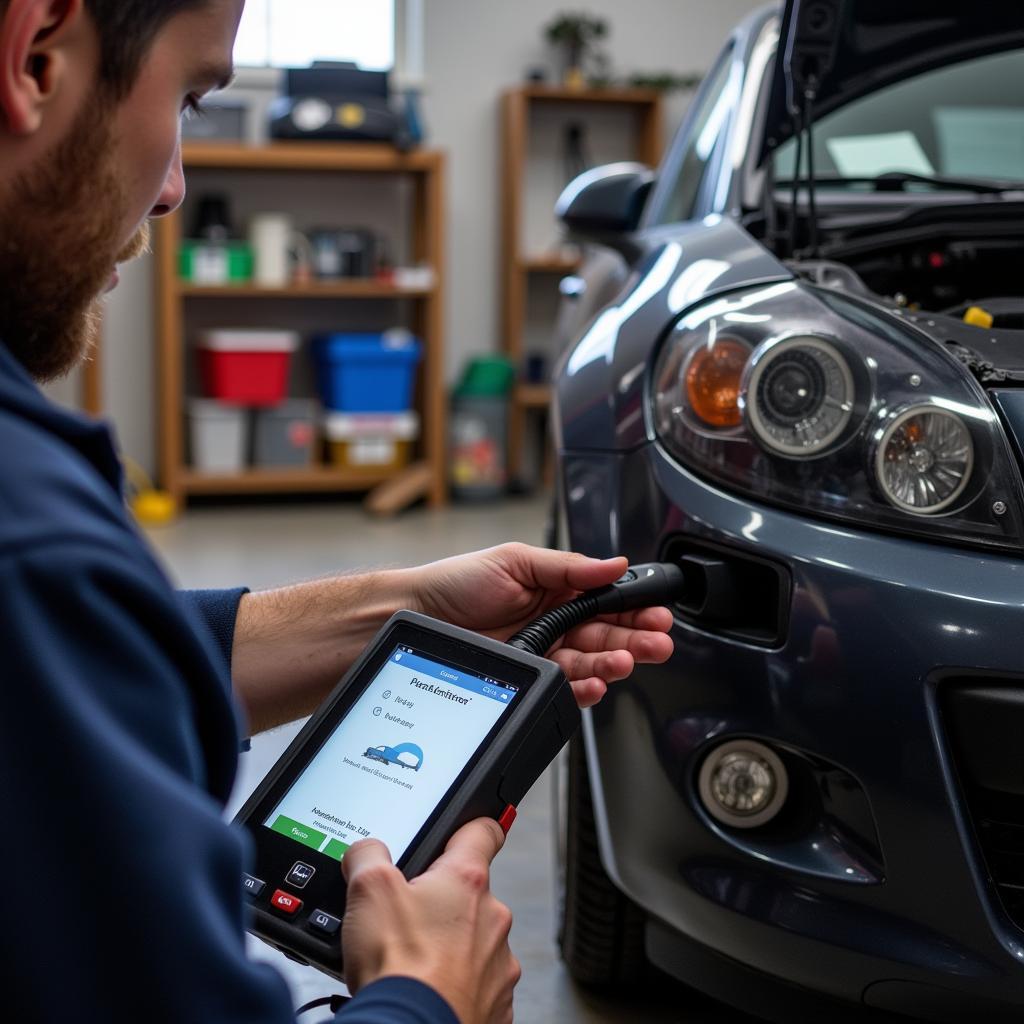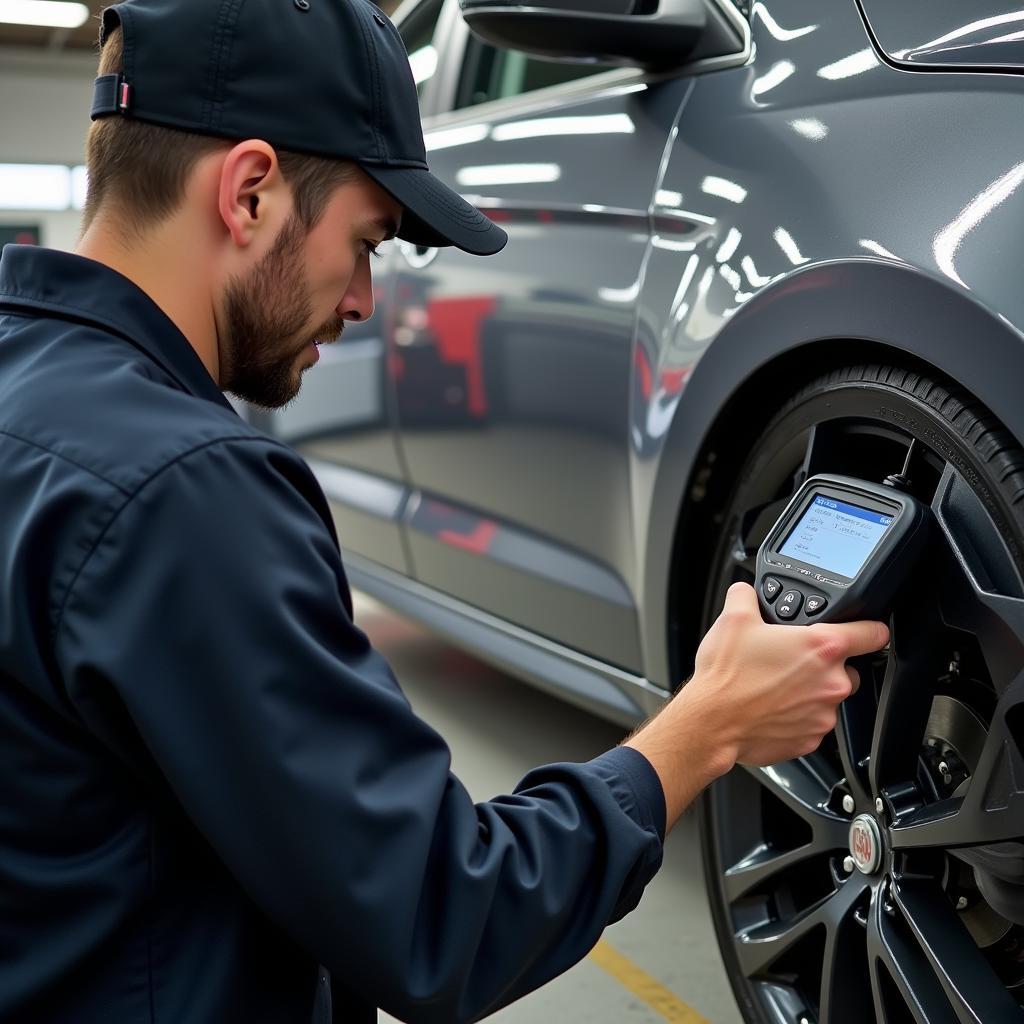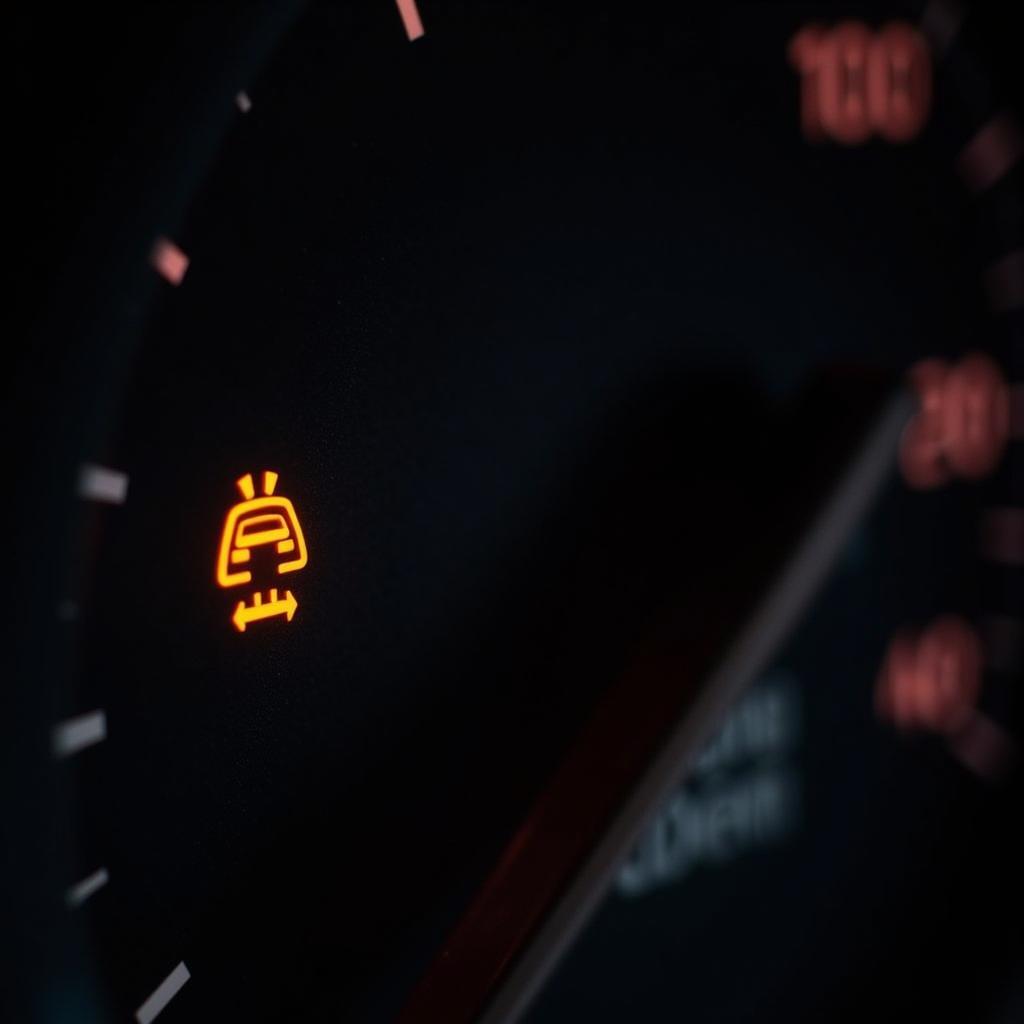Finding out what’s wrong with your car can be stressful and confusing. When that check engine light pops on, you need answers fast. But where exactly can you get reliable car diagnostics run? Don’t worry, we’ve got you covered. This comprehensive guide will walk you through all of your options.
Understanding Car Diagnostics
Before we dive into where to get your car diagnosed, let’s clarify what car diagnostics actually are. In simple terms, it’s like giving your car a health check-up.
Car diagnostics involve plugging a specialized tool, called an OBD-II scanner, into your car’s onboard computer. This scanner reads and interprets trouble codes stored in the computer, which indicate potential issues with your vehicle’s engine, transmission, emissions system, and more.
Options for Running Diagnostics on Your Car
You have several choices when it comes to getting your car diagnosed, each with its pros and cons. Let’s break them down:
1. DIY Diagnostics: Can I Run Diagnostics on My Car Myself?
Yes, you absolutely can! Can I run diagnostics on my car? Affordable OBD-II scanners are readily available online and at auto parts stores. These handy devices allow you to read and clear basic trouble codes yourself.
Pros:
- Cost-effective: DIY diagnostics are the most budget-friendly option.
- Convenient: Diagnose your car at your own pace and on your own time.
- Empowering: Gain a basic understanding of your car’s health.
Cons:
- Limited information: Basic scanners may not provide detailed explanations of codes.
- Potential for misinterpretation: Incorrectly interpreting codes can lead to unnecessary repairs.
- No repair guidance: You’ll still need to figure out how to fix the problem.
 Man running DIY car diagnostics
Man running DIY car diagnostics
2. Auto Parts Stores: A Quick and Easy Solution
Most large auto parts chains offer free diagnostic code reading as a service. They’ll plug in their scanner and provide you with a printout of the codes.
Pros:
- Free service: Saves you money on a basic diagnostic scan.
- Convenient location: Auto parts stores are easily accessible.
- Quick turnaround: Get your codes read in a matter of minutes.
Cons:
- Limited information: They typically only provide the codes, not explanations.
- Upselling: Be prepared for potential sales pitches for parts or services.
- No guarantee of accuracy: The quality of their scanners and expertise can vary.
3. Independent Mechanics: A Trusted Option
Local mechanics are a reliable choice for car diagnostics. They have the experience, knowledge, and more advanced tools to provide accurate diagnoses.
Pros:
- Expertise: Mechanics are trained to interpret codes and diagnose issues.
- Comprehensive inspection: They can look beyond the codes to identify underlying problems.
- Repair services: They can fix the problem after diagnosis, saving you time and hassle.
Cons:
- Cost: Mechanic labor rates can vary, so it’s essential to inquire about pricing.
- Potential for unnecessary repairs: Choose a reputable mechanic to avoid this risk.
 Mechanic running car diagnostics at a repair shop
Mechanic running car diagnostics at a repair shop
4. Dealerships: Specialized Expertise but at a Price
Dealerships employ technicians trained specifically on your car’s make and model. They have access to the latest diagnostic equipment and technical bulletins.
Pros:
- Specialized knowledge: Technicians possess in-depth knowledge of your car’s systems.
- Access to OEM parts: They use genuine original equipment manufacturer parts for repairs.
- Warranty coverage: Repairs might be covered under your vehicle’s warranty.
Cons:
- Most expensive option: Dealerships typically have the highest labor rates.
- Potential for upselling: Like auto parts stores, dealerships might push for additional services.
5. Mobile Mechanics: Convenience at Your Doorstep
For added convenience, consider a mobile mechanic. They come to your location to perform diagnostics and even minor repairs.
Pros:
- Ultimate convenience: No need to drive your car to a shop.
- Time-saving: Avoid waiting rooms and scheduling hassles.
- Competitive pricing: Mobile mechanics often offer competitive rates.
Cons:
- Limited scope of repairs: They might not have the equipment for complex repairs.
- Weather dependent: Services can be affected by weather conditions.
Factors to Consider When Choosing Where to Run Diagnostics
- Urgency: If your car is exhibiting severe symptoms, prioritize a mechanic or dealership.
- Budget: DIY or auto parts stores are budget-friendly, while mechanics and dealerships cost more.
- Complexity: For intricate issues or if you suspect a serious problem, choose a mechanic or dealership.
- Convenience: Mobile mechanics or DIY options provide the most convenience.
Tips for Getting the Most Out of Your Car Diagnostics
- Keep track of symptoms: Note any unusual noises, smells, or warning lights.
- Gather vehicle history: Provide maintenance records and previous repair information.
- Ask questions: Don’t hesitate to clarify anything you don’t understand about the diagnosis.
- Get a second opinion: If you’re unsure about a diagnosis or recommended repair, seek a second opinion.
 Car dashboard illuminated with various warning lights
Car dashboard illuminated with various warning lights
FAQs about Car Diagnostics
Q: How much does it cost to run diagnostics on a car?
A: The cost can range from free at auto parts stores to how much does it cost to run diagnostics on car at dealerships. How much to run diagnostics on a car varies depending on factors like location and the complexity of the diagnostic process.
Q: What program to use to run diagnostics on a car?
A: The software used for car diagnostics can range from basic code readers to sophisticated professional-grade programs. What program to use to run diagnostics on a car depends on your needs and budget.
Q: Will a car service run diagnostics?
A: Yes, most car service centers, including mechanics, dealerships, and some auto parts stores, offer diagnostic services. Will a car service run diagnostics? They can vary in their capabilities and pricing.
Q: Can running diagnostics damage my car?
A: Running diagnostics themselves won’t harm your car. The process involves reading data from your vehicle’s computer, not altering it. However, inexperienced individuals should be cautious when using DIY scanners to avoid accidentally clearing important codes or data.
Q: How often should I get my car’s diagnostics run?
A: It’s a good idea to have your car’s diagnostics checked at least once a year or as part of your regular maintenance schedule. Additionally, if you notice any warning lights or unusual car behavior, it’s best to get it checked out immediately.
Getting the Answers You Need
Don’t let car troubles keep you off the road! Now that you know where to run diagnostics on your car, you’re empowered to take control of the situation. Whether you choose the DIY approach, a quick check at an auto parts store, or the expertise of a mechanic or dealership, getting your car diagnosed promptly is crucial to address potential issues early on and keep your vehicle running smoothly for miles to come.
Need expert advice or assistance with car diagnostics? We’re here to help! Contact our team 24/7 via WhatsApp at +1(641)206-8880 or email us at [email protected] for personalized guidance and support.

Leave a Reply